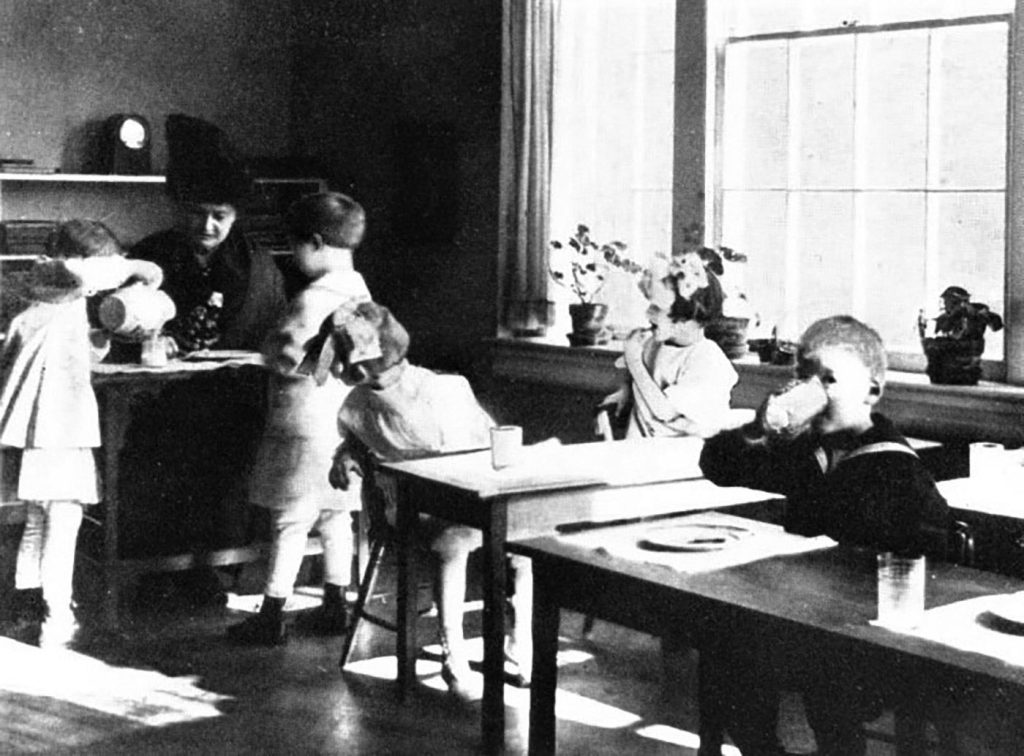At Montessori Milestones, we believe education isn’t just about what children learn — it’s about how they learn. That’s why we follow the Montessori method, a world-renowned approach that nurtures curiosity, independence, and a genuine love for discovery from the very beginning.
Developed over a century ago by Dr. Maria Montessori, this philosophy is more than just a classroom style — it’s a way of seeing children as capable individuals who thrive when given the right environment and guidance.
In this article, we’ll explore the key principles behind the Montessori approach and how they help children build confidence, creativity, and foundational skills that last a lifetime.
What Is Montessori?
The Montessori method is an educational philosophy developed by Italian physician and educator Dr. Maria Montessori in the early 1900s. After observing how young children learn naturally through exploration and repetition, she created an approach that respects the child’s innate drive to learn — on their own terms and at their own pace.
At its core, Montessori is child-led and educator-guided. Rather than a traditional “one-size-fits-all” model, Montessori classrooms are carefully prepared environments where children choose their own activities from a range of purposeful options. These choices are supported by specially designed materials that promote hands-on, experiential learning.
The Montessori philosophy sees children as capable, curious, and intrinsically motivated to understand the world around them. With the right setting, time, and guidance, they develop independence, concentration, and confidence — qualities that serve them well beyond the early years.
Montessori is also one of the most researched alternative education systems in the world. Studies by Dr. Angeline S. Lillard and others have shown that children in high-fidelity Montessori environments demonstrate stronger outcomes in academic achievement, executive functioning, and social-emotional development compared to peers in traditional settings (Lillard, 2006; Lillard et al., 2017).
At Montessori Milestones, we bring this evidence-based method into every part of our early learning environment.

The 5 Key Principles of Montessori
Montessori education is built on a set of foundational principles that shape every part of a child’s learning journey. These five principles are what make the method so powerful — and so different from traditional approaches.
1. Respect for the Child
At the heart of Montessori is deep respect for each child’s individuality. Educators observe rather than dictate, allowing children to make choices, express preferences, and build confidence through independence. This respectful approach nurtures self-discipline and intrinsic motivation.
2. The Absorbent Mind
Montessori recognised that from birth to around age six, children experience what she called the “absorbent mind” — a unique phase where they naturally take in vast amounts of information simply by living and interacting with their environment. This learning happens effortlessly and continuously, shaping the foundations for language, movement, social skills, and emotional understanding.
Modern neuroscience and Australian early childhood research now confirm what Montessori observed more than a century ago. According to the Australian Early Development Census (AEDC) and studies from the Murdoch Children’s Research Institute, the early years — especially the first five — are a critical period for brain development, with around 90% of a child’s brain growth occurring before age five.
The Early Years Learning Framework (EYLF V2.0) also highlights the significance of early experiences in shaping identity, wellbeing, and lifelong learning potential. It emphasises responsive environments and child-led learning — principles that are deeply aligned with the Montessori approach.
At Montessori Milestones, we honour this powerful window of opportunity by providing enriched, child-centred environments where children can explore, create, and grow at their own pace — guided by the wisdom of Montessori and informed by contemporary Australian research and curriculum standards.
3. Sensitive Periods
Children pass through natural windows of opportunity — called sensitive periods — when they are particularly drawn to certain types of learning (like language, order, or fine motor control). Montessori educators recognise and support these phases, offering materials and activities that match the child’s current developmental needs.
4. Prepared Environment
The classroom is carefully designed to encourage exploration and self-directed learning. Everything — from the size of the furniture to the organisation of materials — is intentional. The environment invites curiosity and ensures children can access tools independently, fostering autonomy and confidence.
5. Auto-Education (Self-Education)
Montessori trusted that, when supported in the right environment, children are capable of teaching themselves. Through hands-on engagement with thoughtfully designed materials, children discover, repeat, and refine their understanding — all while developing focus, problem-solving skills, and a love of learning.
Together, these principles form the backbone of Montessori Milestones’ educational approach. They guide not just what we teach, but how we support every child’s growth — emotionally, socially, and intellectually.
How Montessori Supports Your Child’s Development
Montessori education supports the whole child — not just their academic progress, but their emotional, social, and physical development too. It’s a holistic model that nurtures key life skills often overlooked in traditional early childhood settings.
At Montessori Milestones, children aren’t rushed from one group activity to the next. Instead, they’re given time to concentrate, explore, and repeat tasks until mastery is achieved — building focus, resilience, and self-confidence. These are the kinds of executive functioning skills that set the foundation for future success at school and beyond.
Socially, Montessori classrooms foster cooperation over competition. Mixed-age groups encourage peer learning, empathy, and leadership. Older children take pride in guiding younger ones, while younger children look up to their peers, creating a natural sense of community.
Emotionally, the method empowers children to take ownership of their choices and understand natural consequences — all within a calm, respectful environment. With consistent routines and beautifully ordered spaces, children feel secure, capable, and valued.
Physically, fine and gross motor skills are developed through purposeful, real-world activities — from pouring water to buttoning shirts, from yoga-like movement to outdoor nature work. These tasks aren’t just “busy work”; they build coordination, independence, and pride in real achievement.
This blend of freedom and structure means that every child is seen, supported, and stretched — in ways that feel meaningful to them.


Montessori at Montessori Milestones
At Montessori Milestones, we bring the Montessori philosophy to life in a way that’s warm, practical, and deeply respectful of every child’s journey.
Our learning environments are thoughtfully curated with Montessori materials and open-ended resources that spark exploration and wonder. Each educator is trained to observe closely, guide gently, and foster a sense of agency in each child — so that learning is never forced, but always joyful.
We also embed the Early Years Learning Framework (EYLF V2.0) alongside Montessori principles to ensure our programs meet national standards while staying true to what works best for children.
Whether your child is learning to tie their shoes, solve a puzzle, or care for their environment, you’ll see the same thread: purposeful learning that builds confidence for life.
Curious to learn more? Schedule a Call and we will explore all your questions
